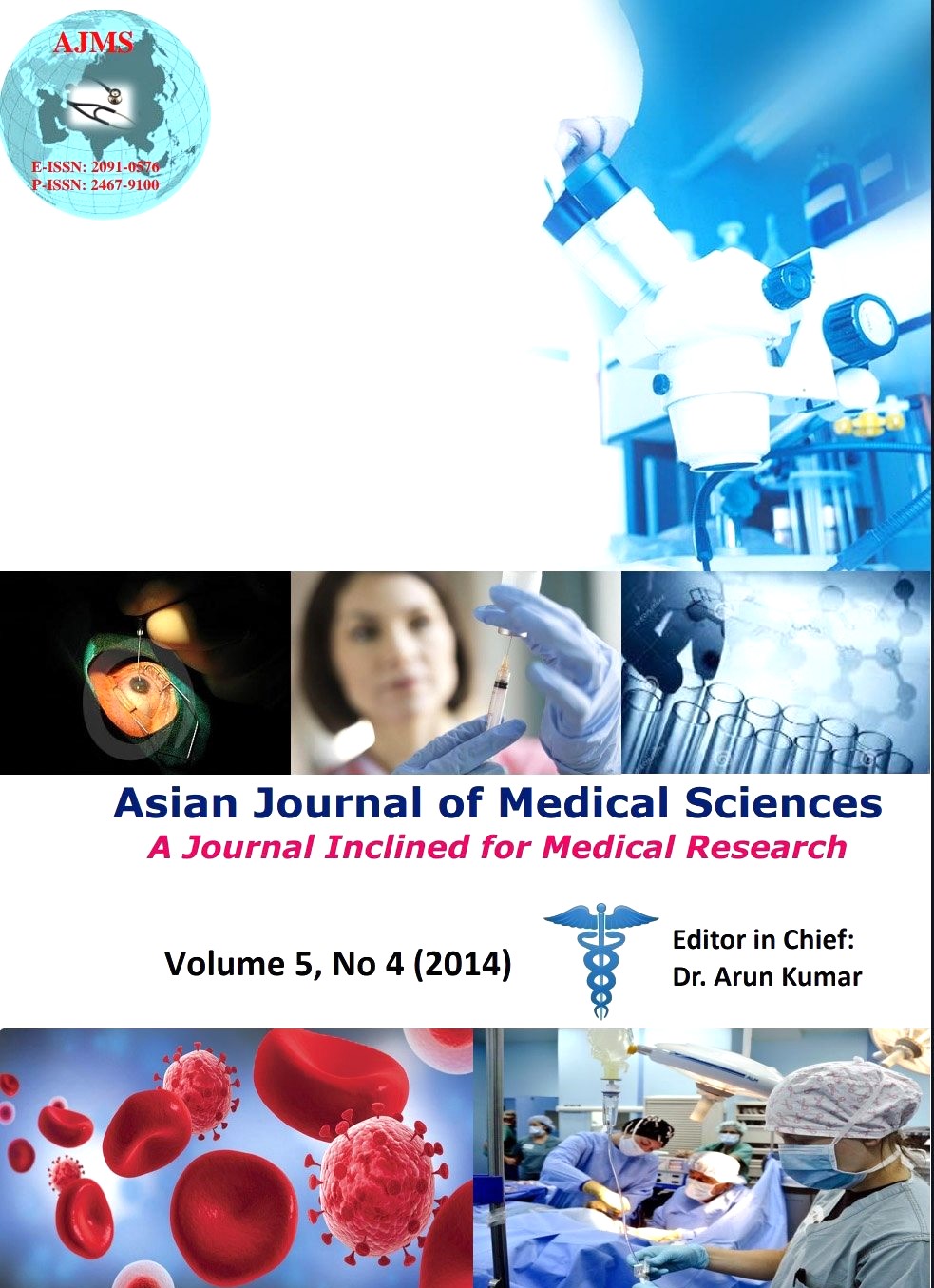Neurocognitive dysfunction among HIV positive patients using International HIV dementia scale
Keywords:
HIV, HIV associated neurocognitive dysfunction (HAND), HIV dementia.Abstract
Background: HIV associated neurocognitive dysfunction (HAND) ranges from asymptomatic neurocognitive impairment (ANI) to mild neurocognitive disorders (MND) to HIV associated dementia (HAD). Cognitive impairment may impact medication adherence which will ultimately affect morbidity and mortality.
Aim: This study was undertaken to evaluate neurocognitive dysfunction among HIV positive patients using the International HIV Dementia scale(IHDS).
Materials and Methods: This cross sectional study was conducted in a tertiary care hospital attached to a medical college that caters to a large number of HIV positive patients. The subjects for this study included HIV positive patients belonging to WHO stage 1 or 2. Data collection was done using a pre tested questionnaire. The International HIV Dementia scale(IHDS) was used to assess HAND.
Results: Out of the 101 patients studied, 69(68.3%) were males and 32(31.7%) were females. Among these patients, 88 (87.1%) were receiving antiretroviral therapy (ART), 84 (83.2%) were in WHO stage 1. 91 (90.1%) patients had HAND. There were statistically significant differences in the gender and educational level between patients with or without HAND. As age advanced the percentage of patients having HAND also increased.
Conclusion: There was high prevalence of HIV associated neurocognitive dysfunction among HIV positive individuals in our study. Also there was an increase in HIV associated neurocognitive dysfunction with increase in age.
DOI: http://dx.doi.org/10.3126/ajms.v5i4.8724
Asian Journal of Medical Sciences 2014 Vol.5(4); 61-64
Downloads
Downloads
Published
How to Cite
Issue
Section
License
Authors who publish with this journal agree to the following terms:
- The journal holds copyright and publishes the work under a Creative Commons CC-BY-NC license that permits use, distribution and reprduction in any medium, provided the original work is properly cited and is not used for commercial purposes. The journal should be recognised as the original publisher of this work.
- Authors are able to enter into separate, additional contractual arrangements for the non-exclusive distribution of the journal's published version of the work (e.g., post it to an institutional repository or publish it in a book), with an acknowledgement of its initial publication in this journal.
- Authors are permitted and encouraged to post their work online (e.g., in institutional repositories or on their website) prior to and during the submission process, as it can lead to productive exchanges, as well as earlier and greater citation of published work (See The Effect of Open Access).




